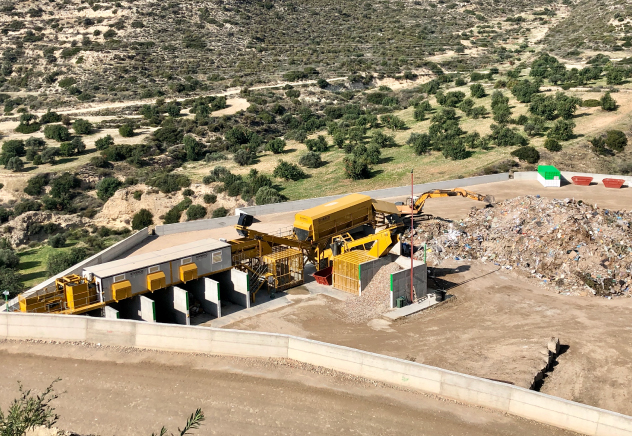
Development of an innovative insulation fire resistant façade from the Construction and Demolition Waste

Frederick Research Center is coordinating the DEFEAT project with the aim to convert waste into a new, innovative material
The project team consists of research centres and universities both in Cyprus and abroad, companies, government agencies and representatives of directly interested parties and potential end users. The Frederick Research Centre is the contractor, while the coordinator and scientific manager of the project is Demetris Nicolaides, Researcher at Frederick Research Center and Associate Professor at Frederick University's School of Engineering.
Construction and Demolition Waste (CDW) approximately represent one third of the total waste generated by economic activities and households, which in EU-28 are about 2.5-3.0 billion tonnes per year. Construction and Demolition Waste generation has increased by an impressive 300% between the years 2003-2013.
In Cyprus, the management of CDW is challenged by the following parameters:
- The annual production of CDW in 2012 was 142,200 tonnes. It is believed that today this quantity is considerably higher, because of the rapid development of recent years and the demolition of several old buildings, making room for new construction.
- These resources will be dramatically increased with a possible settlement of the current political issue.
- Due to the small size of the island, landfill sites are becoming increasingly difficult to come by.
- Natural aggregate resources are already very limited and the attempt to procure new quarrying sites places pressure on environmentally sensitive areas.
- Existing environmental regulations encourage recycling, yet there is still much ground to be covered for recycling rates to reach the desired levels.
Further, in recent years, safety concerns in buildings, especially as these relate to fire protection, have witnessed an increasing attention, possibly as a result of a series of large-scale fires that have taken place in the last years, such as in the Mandarin Hotel in the UK (2018) and the Grenfell Tower in London (2017), both of which led to human casualties, major structural damages and serious consequences for the regional economies. It has been reported that the fire incidents in Europe have increased by a staggering 300% between the years 2010-2015. At the same time, the current market thermal insulation solutions consist of materials that are either combustible, or undergo spalling phenomena in case of fire incidents (such as cement based materials), or materials which they have high cost, or materials, the production of which carries an expensive environmental tag.
The “Development of an innovative insulation fire resistant façade from the Construction and Demolition Waste” (DEFEAT) project rises in an attempt to tackle the aforementioned issues.
The Project DEFEAT (INTEGRATED/0918/0052) has been co-funded by the European Regional Development Fund (ERDF) and the Cyprus Government, through the RESTART 2016-20 framework program of the Cyprus Research & Innovation Foundation and it envisions to develop a pilot scale of an innovative separation method for CDW, develop a composite material also generated from CDW that will be characterized by low thermal conductivity, satisfactory mechanical properties, and fire resistance properties. The produced material will be able to be applied as a façade, either on existing or new construction projects.
Read more at the project's official website here

